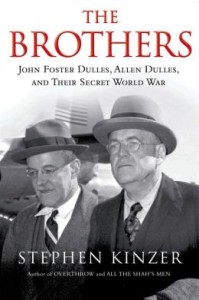
One of them was the most powerful U. S. Secretary of State in modern times. The other built the CIA into a fearsome engine of covert war. Together, they shaped U. S. foreign policy in the 1950s, with tragic consequences that came to light in the decades that followed. These were the Dulles brothers, Foster and Allen, born and reared in privilege, nephews of one Secretary of State and grandsons of another.
What they did in office
Allen Dulles masterminded the coup that turned Iranian prime minister Mohammad Mossadegh out of office and installed the Shah on the Peacock Throne. Less than a year later he presided over the operation that ousted Guatemalan president Jacobo Arbenz. He set in motion plots to assassinate Gamal Abdel Nasser in Egypt, Sukarno in Indonesia, Ho Chi Minh in Vietnam, Patrice Lumumba in the Congo, and Fidel Castro in Cuba. He delegated to his deputy, Richard Bissell, leadership of the Bay of Pigs invasion of Cuba. Later, out of office, he served on the Warren Commission on the assassination of John F. Kennedy. “‘From the start, before any evidence was reviewed, he pressed for the final verdict that Oswald had been a crazed gunman, not the agent of a national and international conspiracy.'”
The Brothers: John Foster Dulles, Allen Dulles, and Their Secret World War by Stephen Kinzer (2013) 416 pages ★★★★★
Foster Dulles repeatedly replaced U. S. ambassadors who resisted his brother’s assassination plots in countries where they served. Pathologically fearful of Communism, he publicly snubbed Chinese foreign minister Chou En-Lai, exacerbating the already dangerous tension between our two countries following the Korean War. The active role he took in preventing Ho Chi Minh’s election to lead a united Vietnam led inexorably to the protracted and costly U. S. war there. He reflexively rejected peace feelers from the Soviet leaders who succeeded Josef Stalin, intensifying and prolonging the Cold War. Earlier in life, working as the managing partner of Sullivan & Cromwell, the leading U. S. corporate law firm, Foster had engineered many of the corporate loans that made possible Adolf Hitler’s rise to power and the growth of his war machine.
What does it mean now?
At half a century’s remove from the reign of the formidable Dulles brothers, with critical documents finally coming into the light of day, we can begin to assess their true impact on U. S. history and shake our heads in dismay. However, during their time in office that spanned the eight years of Dwight Eisenhower’s presidency and, in Allen’s case, extended into Kennedy’s, little was known to the public about about Allen’s activities (or the CIA itself, for that matter), and Foster’s unimaginative and belligerent performance at State was simply seen as a fair expression of the national mood, reflecting the fear that permeated the country during the most dangerous years of the Cold War.
Diving deeply into recently unclassified documents and other contemporaneous primary sources, Stephen Kinzer, author of The Brothers, has produced a masterful assessment of the roles played at the highest levels of world leadership by these two very dissimilar men. Kinzer is respectful throughout, but, having gained enough information to evaluate the brothers’ performance against even their own stated goals, he can find little good to say other than that they “exemplified the nation that produced them. A different kind of leader would require a different kind of United States.”
Their unique leadership styles
To understand Foster’s style of leadership, consider the assessments offered by his contemporaries:
- Winston Churchill said “‘Foster Dulles is the only case I know of a bull who carries his own china shop around with him.'”
- Celebrated New York Times columnist James Reston “wrote that [Foster] had become a ‘supreme expert’ in the art of diplomatic blundering. ‘He doesn’t just stumble into booby traps. He digs them to size, studies them carefully, and then jumps.'”
- Senator William Fulbright, chair of the Senate Foreign Relations Committee, said Foster “misleads public opinion, confuses it, [and] feeds it pap.”
- “A foreign ambassador once asked Foster how he knew that the Soviets were tied to land reform in Guatemala. He admitted that it was ‘impossible to produce evidence’ but said evidence was unnecessary because of ‘our deep conviction that such a tie must exist.'” (Sounds similar to the attitude of a certain early-21st-century President, doesn’t it?)
Allen, too, comes up very, very short: “He was not the brilliant spymaster many believed him to be. In fact, the opposite is true. Nearly every one of his major covert operations failed or nearly failed . . . [Moreover,] under Allen’s lackadaisical leadership, the agency endlessly tolerated misfits.” He left the CIA riddled with “lazy, alcoholic, or simply incompetent” employees.
Stephen Kinzer was for many years a foreign correspondent for the New York Times, reporting from more than fifty countries. The Brothers is his eighth nonfiction book. It’s brilliant.
For further reading
For addition insight into the CIA in the 1940s and 50s, see The Quiet Americans: Four CIA Spies at the Dawn of the Cold War by Scott Anderson (Four CIA spies who helped set US policy in the 1940s and 50s).
This is one of the many good Nonfiction books about national security and of 20 good nonfiction books about espionage.
Like to read good biography? Check out Great biographies I’ve reviewed: my 10 favorites.
If you enjoy reading nonfiction in general, you might also enjoy:
- Science explained in 10 excellent popular books
- Great biographies I’ve reviewed: my 10 favorites
- Top 10 nonfiction books about politics
For more good books on the history of the US, see Understanding American history: a reading list.
And you can always find my most popular reviews, and the most recent ones, plus a guide to this whole site, on the Home Page.


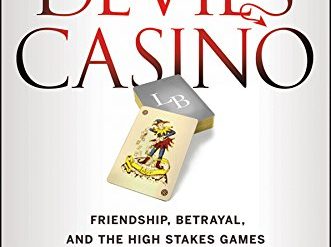
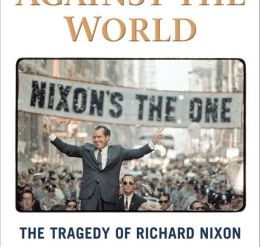
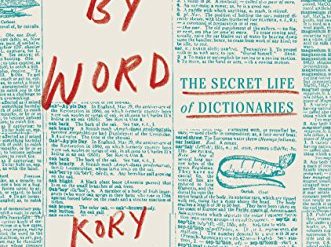
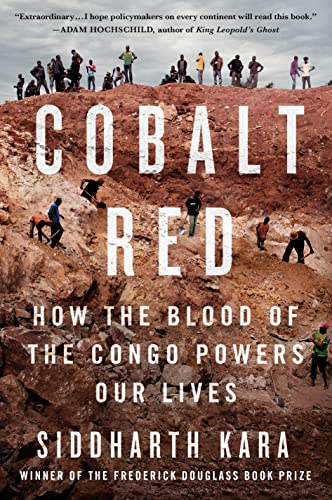





















Why bother with deep-seated conspiracies when simple incompetence will do?
OR
The wildest paranoid fantasies of the X-Files really does not measure up to reality.
OR
The real bad guys are never the ones on the receiving end of an assasin’s bullet (that one’s a bit harsh).
No comment.